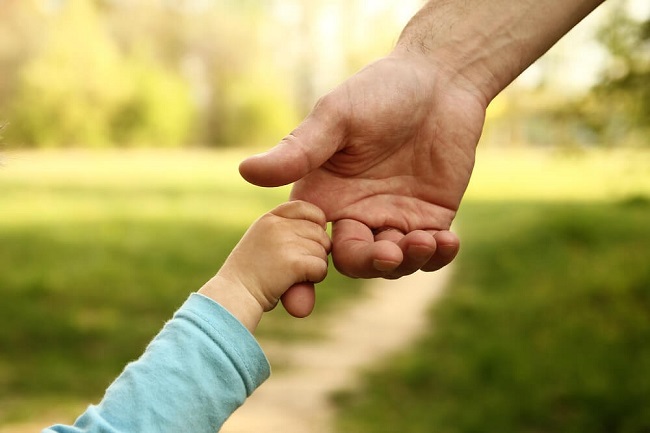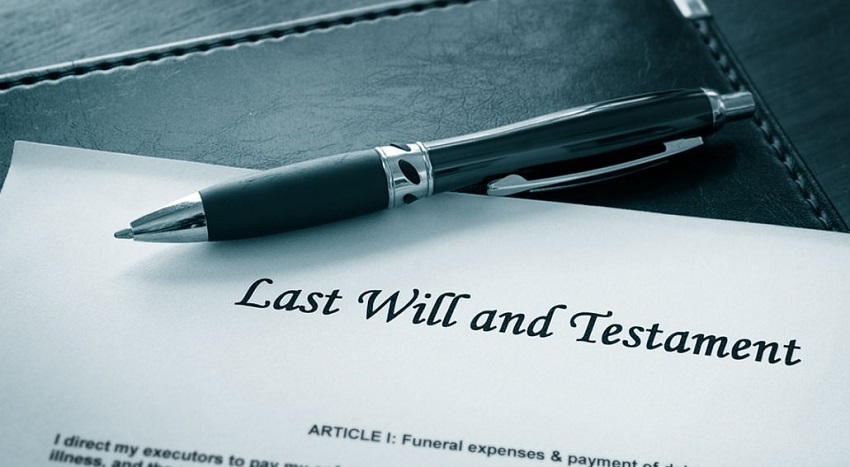Care for your children
What is parental authority? In the Netherlands, having parental authority means that you are responsible for the care and education of your underage children. This means that parents with authority over their children have the duty and right to care for and raise their...
Author: Joep Ertem, LL.M.
As a deputy civil law notary from an internationally oriented firm, Joep Ertem provides his clients with advice on a wide range of legal subjects. He specializes in the drawing up of (living) wills and setting up tax plans in order to avoid unnecessary burdens, as well as advising international clients on matters where family law and real estate law overlap. His goal is to create and maintain a bond of trust with his clients, which he considers a necessity to come to the right solution to legal problems.

Care for your children
What is parental authority?
In the Netherlands, having parental authority means that you are responsible for the care and education of your underage children. This means that parents with authority over their children have the duty and right to care for and raise their minor children. This includes (but is not limited to) caring and taking responsibility for the mental and physical welfare and safety of children and promoting the development of their personality. However, It also entails that parents have the power to manage their assets, arrange their legal matters and to make medical decisions on their behalf when this is needed.
Who has parental authority?
The principle of Roman origin that “the mother is always certain” leads to the consequence under Dutch law that a mother who has given birth to a child automatically also has parental authority over her child.
Furthermore, if the father or the co-mother (the non-birth mother, who is the birth mother’s partner) is married to or has a registered partnership with the birth mother, he or she is also given parental authority by law.
Joint parental authority can be applied for at the court over children who are born out of wedlock or registered partnership. The other parent must also have acknowledged that he or she is the legal parent of the child involved. This is usually done when having the birth registered at the municipality in which the child is born.
What happens if you haven’t appointed somebody?
Parental authority of an individual ends when he or she deceases. In case the child has two parents with parental authority, the surviving parent will have sole parental responsibility. If there is no other person with parental authority and the parents have died in the Netherlands, the Dutch juvenile court is authorized to appoint a guardian for the child. For this, the court will contact the Child Care and Protection Board (in Dutch: “Raad voor de Kinderbescherming”). They usually contact the Youth Care Office (in Dutch: “Bureau Jeugdzorg”) as well.
With the help of these two organisations, the court will explore the possibility of placing the children under the care of relatives. However, your relatives may not be located in the Netherlands, due to which the court may be unable to contact those relatives to assess whether they can properly function as your children’s guardians. Their existence may simply not be known to the court. In that case, the children will be placed under the custody of the Youth Care Office, who will place them under the care of a foster family.
Furthermore, the awful truth is that children are sometimes placed in different foster families as a result of the simple fact that there is no room for multiple children in one foster family. They are, thus, separated from one another.
In addition, even if they are placed in one foster family, this could very well be a temporary arrangement. The court may put children under the care of another foster family, if their firstly appointed carers cease or are unable to continue their duties as foster parents. This could lead to additional stress and the (further) impairment of the children’s development.
Leave your children in good hands by appointing a legal guardian
Though I think everyone should respect the crucial role foster parents play in society, parents themselves usually know who would be a much better carer of their children as opposed to a stranger appointed by court. Designating this person would also ensure that the undesirable situation is averted of children being placed in different foster families.
According to Dutch law, parents with parental authority may appoint a legal guardian in a will. In spite of generally being a document in which an individual expresses his or her wishes as to how property should be divided, a will can also be used to indicate who should acquire custody over minor children.

Moreover, you can place the assets, which you leave to your children under administration (in Dutch: “testamentair bewind”). During this administration, the administrator shall administrate and dispose of these assets however he sees fit, as long as it is in the children's best interest. This administrator could, for example, sell certain assets in the parents’ estate or withdraw cash, if he deems this necessary for the children's own good. In other words, the administrator is the children’s carer in financial sense, whereas a legal guardian is somebody under whose custody the children will be placed and is, therefore, responsible for the upbringing of the children. The administrator does not have to be the same person as the legal guardian.
The advantage of appointing a financial administrator in addition to a legal guardian is that the legal custody over a child ends once the child reaches adulthood (18 years). However, a financial administration is not linked to a child’s minority and may continue until the child reaches an older age (for example, 25 years). Thus, it is a tool to keep children in check until they reach an older, and hopefully a much wiser, age than 18.
Dutch courts will respect this appointment if the children are living in the Netherlands. However, it is impossible to be certain that a foreign court will respect this appointment as well. This depends on the law and the court of the country where the children are living at the time.
Stay ahead and prevent problems
In conclusion, if you came to the Netherlands to work and live here with minor children, it is essential that you make a will in which you have appointed a legal guardian. Especially if your closest relatives live abroad, who may act as your children’s carers if something would happen to you and your partner.
It is important to contact a Dutch civil law notary firm to prevent any legal troubles from arising in the future concerning the care of your children. As an internationally oriented notary firm, we can guide you in this matter.
Please contact us for more information and expert legal advice!